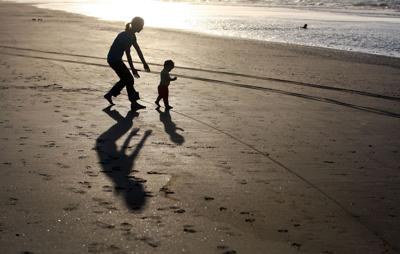An October report by state health officials shows more than 58,000 babies were born in South Carolina last year, but the total still falls thousands short of pre-recession levels, raising questions about economic recovery and long-term fertility rates.
By comparison, nearly 63,000 infants were born in the state in 2007.
Experts say many factors contributed to the trend but that it primarily may be traced to the fact women are waiting longer to start families.
Numbers reported by the S.C. Department of Health and Environmental Control bear this out.
In 1990, 17,900 women ages 20-24 gave birth in South Carolina. By 2015, the number within that age group dropped to 14,796. Likewise in 1990, fewer than 10,000 women ages 30-34 gave birth. Last year the number increased to 14,169.
"This is not unique to South Carolina or even the United States," said Robert Hartwig, a University of South Carolina economist. "This is a global phenomenon."
He explained declining fertility rates actually pre-date the recession. The economic downturn in 2008 accelerated the trend.
"This recession was so deep and, for many people, impacted them for so long … it has always been the case that a major driver of fertility is the economics of the family," he said. "In theory (the recession) ended in 2009 but most people didn’t feel that way, so everything was postponed."
Caroline Hartnett is a demographer at the University of South Carolina and an expert on fertility rates. She said lower fertility rates are a mark of industrialized countries and, in fact, the rate in the United States is actually higher than other wealthy nations.
Like Hartwig, Hartnett said the real decline can be traced to around 2000.
"If you look at other states, most other states also saw this exact same pattern. There was this mini baby boom around 2006 to 2008 and then fertility rates went down again," she said. "The cost and benefits of having children have changed and it now makes sense to have smaller families."
Still, she said, the rates have remained fairly stable, especially in light of the recession. "In the grand scheme of things it’s not a huge decline and most other countries are much worse and I think it’s actually remarkable the stability of the fertility rate."
At Roper St. Francis, locals numbers paint a similar picture. Total births within the hospital system have risen steadily since 2008, but Laura MacMillan, the director of women’s services, said statistically they appear fairly flat.
Not only are women waiting longer to get pregnant, she said, the teenage pregnancy rate has been declining too. Moreover, she said, millennials of child-bearing age are "thinking differently" about bringing children into the world. They worry about global warming, the cost of child care and adjusting their own lives to accommodate a baby, she said.
"There are a lot of thing going on," MacMillan said. "I think it’s a super interesting topic."







